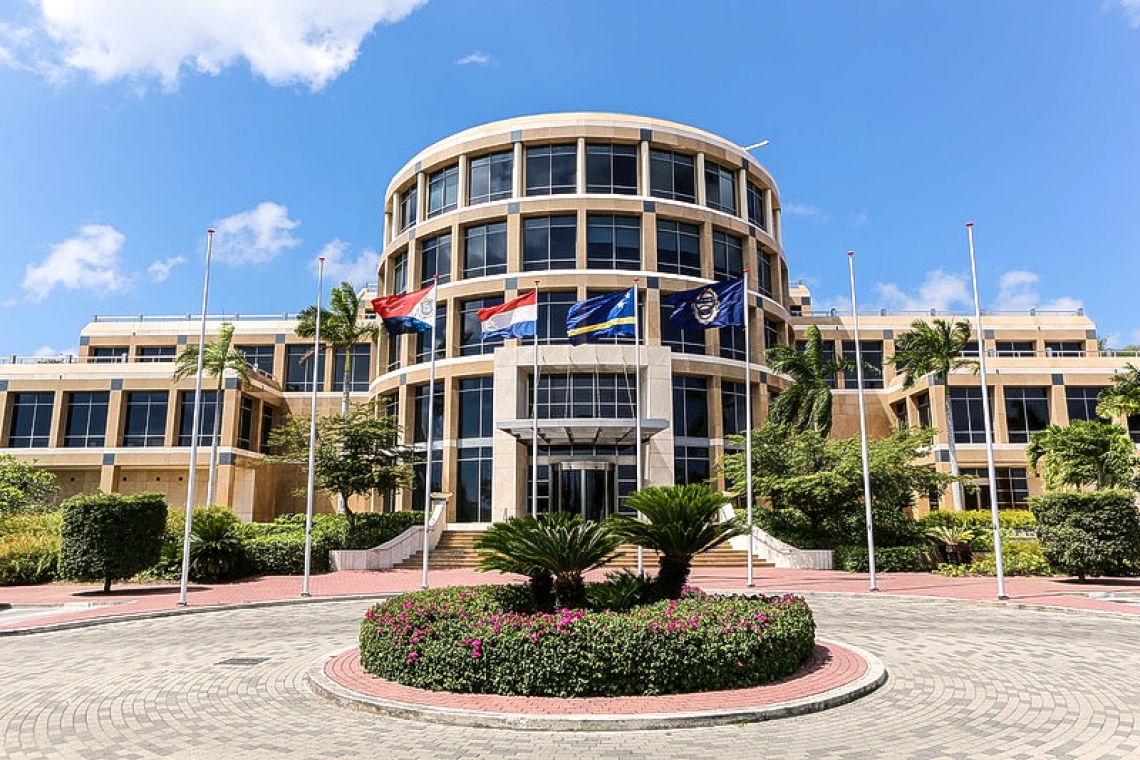The Central Bank of Curaçao and St. Maarten’s main office in Willemstad. (Central Bank/Twitter photo)
PHILIPSBURG--The Supervisory Board of the Central Bank of Curaçao and St. Maarten (CBCS) developed a new remuneration structure at the end of 2017, and the total salary cost of CBCS management has since been reduced by 39 per cent annually over the past two years.
The Central Bank’s supervisory board stated this in a press release in response to media reports regarding the remuneration of the bank’s top brass, which allegedly was above the recently introduced standard norm.
Because of the related turmoil, the board said it has decided to provide as much openness as possible, without violating the privacy rights of those involved.
After its appointment in 2017 and in the run-up to the recruitment of new directors, the CBCS Supervisory Board commissioned a benchmark survey on the terms of employment, which was carried out by an independent expert agency.
The aim of the study was to assess both primary and secondary terms of employment to determine to what extent the existing remuneration structure at the CBCS matched the salaries for comparable positions at other financial supervisors and the financial sector, both locally and in the region.
At the end of 2017, the board developed a new remuneration system based on the outcome of the investigations, the Central Bank stated.
It has also been stipulated that if during the recruitment process it proves difficult to find a candidate director for a salary within the set bandwidth, as an exception, the maximum remuneration can be increased by a fixed maximum percentage.
Curaçao media, the Amigoe and Antilliaans Dagblad newspapers among them, previously reported that candidate Central Bank president Richard Doornbosch would earn a gross salary of more than NAf. 45,000 per month.
In determining the salary of a director, the salary the person earned in his previous position is taken into account and any additional cost involved in the (temporary) migration to a foreign country, the Central Bank said.
For this reason, the so-called expat scheme was also established in Curaçao, which has been applied for years in the local international financial sector as a necessary scheme to attract international financial experts. As a result, the total cost for scarce temporary foreign employees can be somewhat reduced.
“The offer for the prospective president has, therefore, been determined within the margins of the established remuneration structure and taking into account the weight and responsibilities associated with the management of a Central Bank,” said the Supervisory Board.
The Central Bank said that in selecting members of the Executive and Supervisory Boards it has focused on obtaining the most suitable candidates.
“One of the important criteria that the Supervisory Board uses when selecting a president is a highly qualified candidate with extensive international experience and a large and relevant international network. The necessity of temporarily recruiting a candidate with international experience and network lies in the current challenges facing the Central Bank of Curaçao and St. Maarten.
“In the opinion of the Supervisory Board, this addition to the board of the CBCS creates the desired balance, including the modernisation of the CBCS that has already been initiated, the strengthening of the image and the confidence of local and international stakeholders,” the Central Bank said.







